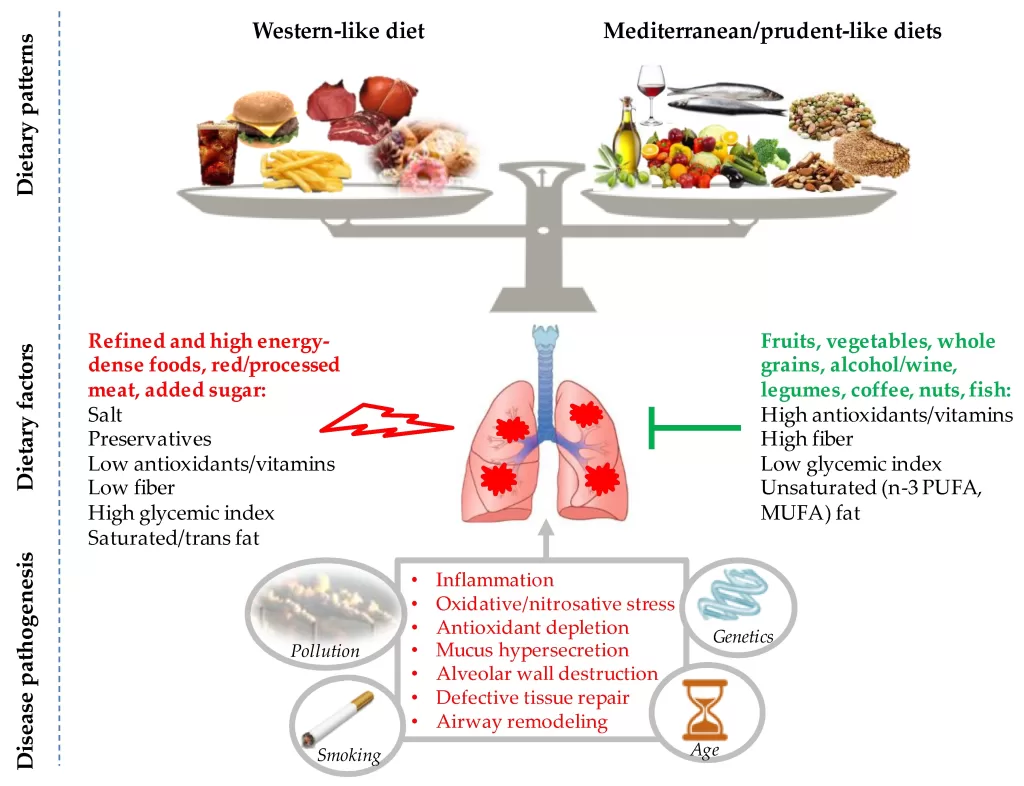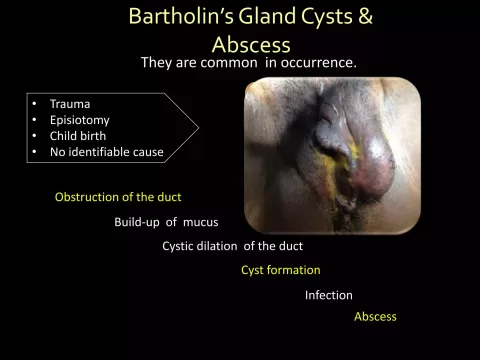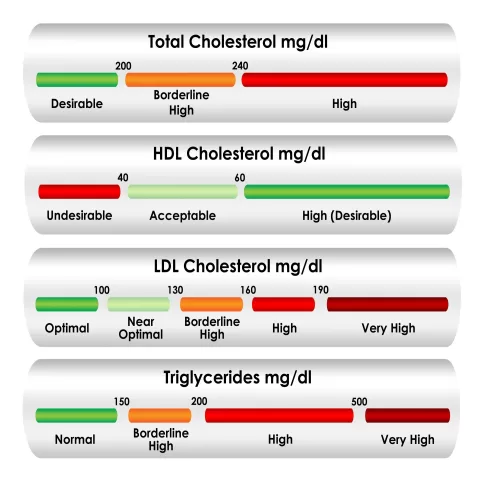When dealing with a chest infection, it’s essential to know the foods to avoid with a chest infection to facilitate a smoother recovery process. A balanced diet plays a crucial role in strengthening your immune system, yet certain foods can exacerbate symptoms and prolong illness. For instance, dairy products and fried foods are known to trigger mucus production, making it harder for your body to heal. In this guide, we will explore key foods that worsen chest infection symptoms, and provide you with actionable dietary tips to help in your recovery. By making informed choices about what to eat for a chest infection, you can support your body’s natural healing mechanisms.
Navigating your meals during a chest infection involves understanding how certain foods can impact your overall health. Dietary selections not only contribute to the recovery process but also play a significant role in managing symptoms effectively. This discussion highlights crucial dietary restrictions for those experiencing respiratory issues, offering insights into how specific meals can either enhance or hinder your health. We’ll guide you through the essentials of a diet for chest infection recovery, including what to eliminate to avoid worsening your condition and how to incorporate alternatives that bolster your immune response. Engaging with the right foods can lead to significant relief and a quicker path to wellness.
Understanding Chest Infections and Dietary Impact
Chest infections are common conditions that can arise from various pathogens, including viruses and bacteria. These infections can manifest with symptoms such as coughing, chest pain, and difficulty breathing, often leading to significant discomfort and fatigue. The importance of diet during recovery cannot be overstated; certain foods can either support your recovery or hinder it. A balanced approach, focusing on nutrient-rich options, is essential for managing chest infection symptoms and expediting healing.
During a chest infection, the body’s immune system works overtime to fight off the invading pathogens, which can deplete energy reserves. The right dietary choices can help bolster the immune response, mitigate inflammation, and speed up recovery. Thus, understanding how foods affect the body during a chest infection is crucial. For instance, while some foods can help with hydration and nutrient delivery, others may exacerbate symptoms or prolong recovery time.
Foods to Avoid with a Chest Infection
When dealing with a chest infection, it’s vital to avoid foods that can aggravate mucus production. Foods that worsen chest infection symptoms include dairy products, which may contribute to mucus thickening despite some debate around this issue. Reports suggest that individuals may experience increased congestion and discomfort after consuming dairy while sick. Therefore, avoiding milk, cheese, and yogurt can be beneficial during recovery.
Additionally, histamine-rich foods should also be on your radar during a chest infection recovery. Fermented items, smoked meats, and certain fruits like bananas can lead to increased mucus production and respiratory discomfort. Eliminating these foods may help alleviate the severity of your symptoms and allow your body to focus on healing.
The Role of Hydration in Chest Infection Recovery
Hydration plays a pivotal role in the recovery process from a chest infection. Adequate fluid intake helps thin mucus in the lungs, making it easier to expel and alleviating coughing. Warm liquids, such as herbal teas, broths, or warm lemon water, not only provide hydration but can also soothe an irritated throat and promote overall wellness. It’s imperative to prioritize these hydrating beverages while avoiding dehydrating options like caffeinated drinks.
Caffeine, found in coffee and energy drinks, can lead to dehydration, which is detrimental during the recovery phase of a chest infection. By replacing these caffeinated beverages with hydrating alternatives, you can support your body’s recovery process, ensuring that symptoms are managed while you work on restoring your health.
Nutrient-Dense Foods for Chest Infection Recovery
Incorporating nutrient-dense foods into your diet can significantly impact recovery from a chest infection. Fruits and vegetables rich in antioxidants help to strengthen your immune system. Citrus fruits, broccoli, and berries provide not only essential vitamins but also the hydration needed for optimal recovery. Foods to favor during this time are those that boost your nutrient intake while being easy on your digestive system, such as steamed veggies and smoothies.
Additionally, whole grains like oats, brown rice, and quinoa offer protective health benefits due to their high fiber content. Fiber aids in maintaining digestive health, which is especially important when the body is under stress from fighting infection. Including these grains in your diet not only provides much-needed energy but can also enhance recovery by supporting overall health.
Supplements and Natural Remedies to Support Recovery
Beyond dietary changes, incorporating supplements and natural remedies can offer additional support during recovery from a chest infection. Honey, for instance, possesses antimicrobial properties and can soothe throat irritation while helping manage coughs. Adding a teaspoon of honey to warm teas can not only enhance flavor but also leverage its health benefits without the risk of dietary hindrances.
Furthermore, herbal supplements such as ginger and garlic may also offer immune-boosting benefits. Ginger is known for its anti-inflammatory properties, which can help alleviate respiratory symptoms, while garlic is recognized for its potential to enhance immune function. Incorporating these into your meals or consuming them in supplement form can ensure that you approach your recovery holistically.
Frequently Asked Questions
What foods to avoid with a chest infection to aid recovery?
When recovering from a chest infection, it’s important to avoid dairy products, as they can thicken mucus. Additionally, steer clear of histamine-rich foods such as fermented items and certain fruits, which may worsen symptoms. Fried and processed foods should also be limited due to their inflammatory effects, while caffeinated and sugary foods can hinder hydration and immune function, respectively.
Are there any foods that worsen chest infection symptoms?
Yes, certain foods can worsen chest infection symptoms. Dairy products, fried foods, and sugar-laden items may exacerbate mucus production and contribute to inflammation. It’s best to eliminate these foods from your diet while recovering from a chest infection to facilitate a smoother recovery.
What diet for chest infection recovery should I follow?
For chest infection recovery, focus on a diet rich in warm liquids like herbal teas and broths, along with plenty of fruits and vegetables that are high in antioxidants. Whole grains should also be included for sustained energy. These foods can support your immune system and help alleviate symptoms.
What to eat for chest infection to promote healing?
To promote healing during a chest infection, prioritize foods like warm liquids, citrus fruits, leafy greens, whole grains, and honey. These options provide hydration, essential nutrients, and anti-inflammatory benefits, which are vital for your recovery.
Can avoiding certain foods help with chest infection symptoms relief?
Absolutely. Avoiding foods like dairy, processed snacks, and high-sugar items can help relieve chest infection symptoms by reducing mucus production and inflammation. Opting for a balanced diet rich in nutritious foods will enhance your body’s healing process.
| Type of Food | Foods to Avoid | Reason for Avoidance |
|---|---|---|
| Dairy Products | Milk, cheese, ice cream | May thicken mucus and worsen symptoms. |
| Histamine-Rich Foods | Fermented products, certain fruits (bananas, avocados) | Can trigger mucus production and aggravate symptoms. |
| Fried and Processed Foods | Fast food, potato chips | High in unhealthy fats that can worsen inflammation. |
| Caffeinated Beverages | Coffee, energy drinks, sodas | Can lead to dehydration, which hinders recovery. |
| Sugary Foods | Candies, sodas | Weakens the immune system and prolongs recovery time. |
| Alcohol | Beer, wine, spirits | Causes dehydration and impairs immune function. |
Summary
Foods to avoid with a chest infection are crucial for a smooth recovery. While battling a chest infection, it’s essential to eliminate dairy products, histamine-rich foods, fried and processed items, caffeinated beverages, sugary foods, and alcohol from your diet. These foods can exacerbate symptoms and hinder recovery due to increased mucus production, inflammation, and dehydration. Instead, focus on nourishing the body with warm liquids, fruits, vegetables, whole grains, and honey, which support the immune system and promote healing. Making informed dietary choices is a vital step towards feeling better.
The content provided on this blog (e.g., symptom descriptions, health tips, or general advice) is for informational purposes only and is not a substitute for professional medical advice, diagnosis, or treatment. Always seek the guidance of your physician or other qualified healthcare provider with any questions you may have regarding a medical condition. Never disregard professional medical advice or delay seeking it because of something you have read on this website. If you believe you may have a medical emergency, call your doctor or emergency services immediately. Reliance on any information provided by this blog is solely at your own risk.








